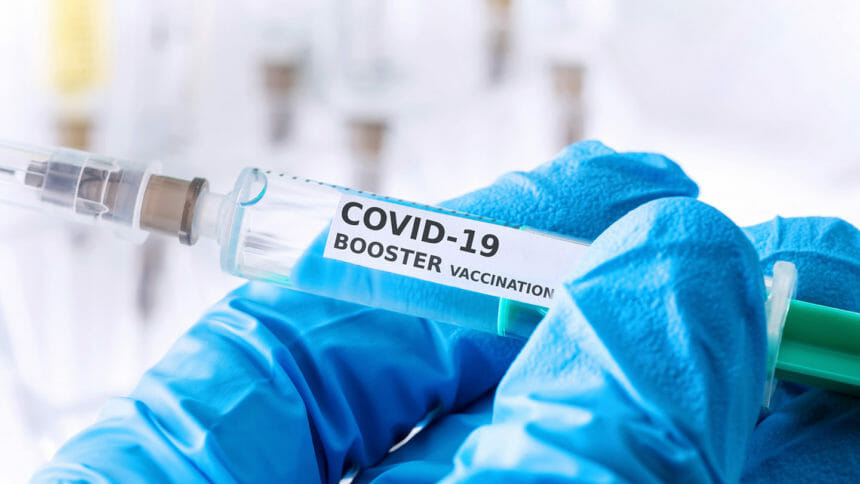
Nursing home residents who received a second mRNA booster shot during the omicron variant waves were much less likely to experience hospitalization and death from COVID-19 when compared to those who received a single booster dose, according to a new study.
A second booster provided residents with 74% lower odds of severe outcomes, including hospitalization and death, and 90% protection against death alone over a 60-day period, CDC investigators and their colleagues reported in the CDC’s Morbidity and Mortality Weekly Report.
The study was conducted across 196 U.S. community nursing homes. Residents received a second booster dose (fourth COVID-19 vaccination) between March 29 and June 15, 2022, a period of omicron dominance ending with variants BA.4 and BA.5.
The findings suggest that facilities should continue ensuring that nursing home residents remain up to date with COVID-19 vaccination, including the new bivalent vaccine booster doses, “to prevent severe COVID-19 outcomes,” the authors concluded.
Push to vaccinate seniors
The CDC’s vaccine advisory committee in March recommended a second mRNA COVID-19 vaccine booster dose for adults aged 50 years and older and immunocompromised individuals who had received a first booster four or more months earlier. A bivalent booster vaccine targeting omicron was later authorized by the Food and Drug Administration and on Sept. 1 recommended by CDC advisors for all persons aged 12 years and older who had completed the primary series using monovalent vaccines two or more months earlier.
The White House is pitching COVID-19 boosters as an annual vaccination. In early September, top health officials said it was planning outreach to vulnerable groups such as nursing home residents who may require more protection.
Two-thirds of adults nix new booster shot
News about the findings in nursing home residents coincides with the release of poll results showing that, despite consistent findings about the protective effect of COVID-19 vaccines and boosters, two-thirds of U.S. adults have no plan to get an updated, bivalent COVID-19 booster shot, according to a new survey conducted by the Kaiser Family Foundation.
In the four weeks following its release, only 3.5% of the 215 million people eligible to receive the updated booster did so, Reuters reported. Some adults were not eligible because they were not up to date on their other doses. And only half of the polled adults said that they had heard a lot or some information about the new boosters.
Antibody levels match younger cohort
Many studies have linked getting a booster shot with high levels of protection against severe COVID-19 disease, especially in those most vulnerable. In fact, a Johns Hopkins study published in May found that COVID protection matches that of younger adults when seniors aged between 75 and 98 years old get a booster shot.
When these older adults’ blood samples were tested between 14 and 30 days after booster shot receipt, their antibody levels matched those of a similarly vaccinated cohort aged 75 years and younger.
Younger adults typically produce more antibodies against disease, both naturally and after vaccination than seniors. They therefore generally are more protected against severe illness.
Related stories:
White House foresees COVID boosters as an annual shot, plans nursing home outreach
CDC: Seniors receive 80% protection against severe omicron illness with fourth vaccine dose
Seniors report fewer reactions after second COVID booster dose, CDC finds




